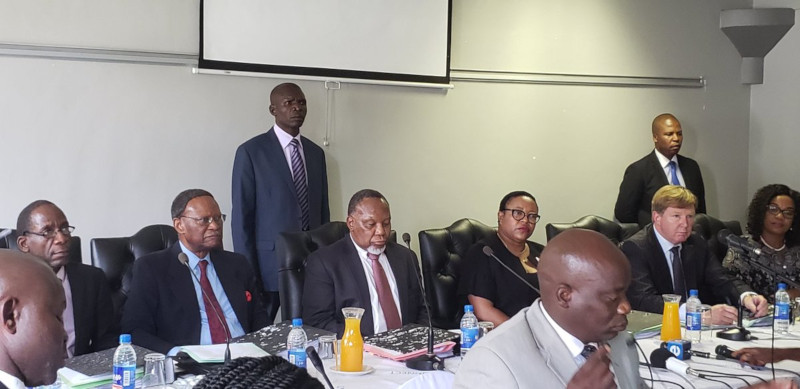Motlanthe commission issues verdict
By Tendayi Madhomu
President Emmerson Mnangagwa has released the Commission of Inquiry report on the politically-motivated violence of August 1, 2018, which blames the military and the police for the death of six civilians in the streets of Harare.

The report vindicates the main opposition party, the MDC, for the violence; and heaps the blame on the military’s use of disproportional force for causing the unnecessary death of innocent civilians.
It says there was negligence and corporate failing in the operations of both the police and military.
“The commission’s finding on a balance of probability of all the evidence received is that the deaths of these six people and the injuries sustained by the 35 others arose from the actions of the military and the police,” reads the report in part.
The military is reported to have fired live ammunition at civilians who were demonstrating in Harare over the inordinate delays in announcing the results of the presidential elections and alleged bias of the Zimbabwe Electoral Commission in running the July 30 polls.
To prevent indiscipline and unnecessary loss of life in future, the report urged the military to conduct an immediate and full audit of its procedures in law engagement, and order of operations including riot control.
Having noted the political discord that has rocked the nation, the commission recommended the need for national reconciliation.
“The commission recommends the establishment of multi-party reconciliation initiatives, including youth representatives, national and international mediators to address the root causes of the post-election violence and to identify the implementing strategies for reducing tensions, promoting common understanding of political campaigning, combating criminality and uplifting communities,” it says.
According to the findings of the report, the environment preceding the election period was generally peaceful.
It was, however, indicated that the media was highly-polarised with the public media tilted towards Zanu PF while the private media favoured the MDC.
The Kgalema Motlanthe-led probe team further established that the August 1 protests were pre-planned and well-orchestrated as evidenced by the arrival time of the protesters and the material that they brought along which included posters, bricks, stones and containers among others.
Headed by former South African president Motlanthe, the commission was appointed by Mnangagwa to probe the August 1, 2018 killings.
Other members of the commission were United Kingdom-based Queen’s Counsel Rodney Dixon, former Commonwealth secretary-general and Nigerian national Chief Emeka Anyaoku, former Tanzania Defence Forces Chief General Davis Mwamunyange, University of Zimbabwe (UZ) Dean of Political Science Professor Charity Manyeruke, UZ Constitutional Law lecturer and National Constitutional Assembly leader Professor Lovemore Madhuku, and former Law Society of Zimbabwe president Vimbai Nyemba.
It was appointed in line with the provisions of the Constitution to inquire into the circumstances leading to the post-election violence and to identify the actors and their leaders, their motive and strategies employed in the protests.
It was also tasked to investigate the circumstances that necessitated the involvement of the military in assisting in the maintenance of law and order.
Having been appointed in September, the commission was expected to complete its task in 90 days and to deliver a report on its findings today.
It was castigated for the shocking pace with which it had submitted the executive summary of its report to Mnangagwa, two days after wrapping up public hearings.
Doubt was looming whether Mnangagwa would make public the findings of the commission as initially promised, after his spokesperson George Charamba initially said there was nothing that obligated the president to share the report with anyone or not to do so if he so wished. DailyNews






